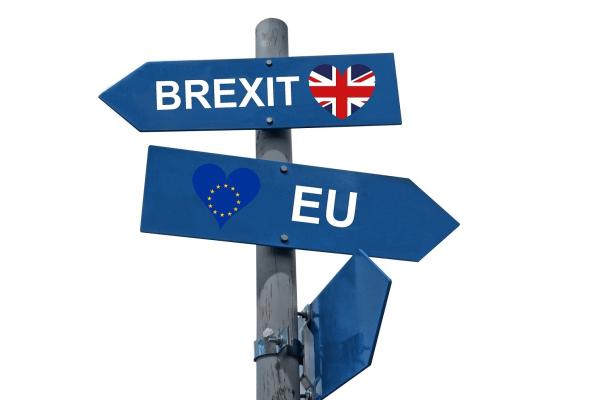
UK-Irish trade debate – new year ‘perfect storm’ has not yet abated, say experts
A panel of tax, trade and business experts, from Ireland and Great Britain, explored the challenges of post-Brexit trade and customs arrangements at an online debate on ‘UK and Ireland: doing business post-Brexit’, organised jointly by CIOT, the Association of Taxation Technicians (ATT) and the Irish Tax Institute (ITI), on 9 March 2021.
The UK left the EU in January 2020 and left the single market and customs union at 11pm on 31 December – except that, of course, Northern Ireland remains in the customs union and remains aligned to the EU single market for goods. These special arrangements keep the north-south trading of goods within the island of Ireland frictionless. However, to protect the single market, new customs checks have been introduced for certain transactions between GB and Northern Ireland and in some circumstances the new rules have caused considerable difficulties for trade between those parts of the UK.
Richard Todd, Deputy President, ATT, gave brief opening remarks. He said it was one of the upsides of a virtual event like this that we can bring together a panel and audience not just diverse in perspectives and expertise but spread geographically. He said he was welcoming participants today from his home in Belfast; the event chair, CIOT President Peter Rayney, would be chairing from the south of England; while the closing remarks would be provided by Sandra Clarke from County Meath. The panel, he noted, were similarly dispersed.
Sally Jones is EY’s Trade Strategy and Brexit lead, based in London. Jones said there was very little in the trade deal for services. She said the EU–UK Trade and Cooperation Agreement (TCA), like other trade agreements, contains both commitments and reservations. The commitments are what both sides have agreed to do to make life easier for business. They can be reassuring. But then you get to the reservations, which are carve outs designed to give wriggle room. Reservations mean that things an entity or a country has agreed to do up front they are now rowing back from. Companies – her clients – say to her: ‘the thing I want is in the agreement’, but she tells them they need to check the reservations too.
Jones said you can look at the deal from a ‘glass half full’ or ‘glass half empty’ perspective. The ‘glass half full’ way is to be cheered by zero tariffs, zero quotas and assurances about unfettered access. But the ‘glass half empty’ view is that there is very little about the services industry, the scale of reservations on the commitments, the lack of guarantees about unfettered travel for data and the additional checks for agri-food. She noticed that more tariffs issues are popping up more often. Some of the challenges at the moment are teething problems, but some are substantive changes. Things are definitely changing in regard to GB-Ireland trade, she added.
Rose Tierney, Principal, Tierney Tax Consultancy, is based just a few hundred meters south of the Irish border in County Monaghan, and specializes in cross-border tax. She said north-south trade had not been greatly affected by the new year changes, but east-west (cross-Irish Sea) trade was ‘a different ball game’. VAT was a big hurdle, especially for small businesses. There was a backlog with big delays. Lot of businesses assumed a trade deal would solve everything, but there’s quotas, there’s licensing, and tariff preference won’t apply if you can’t prove origin.
Tierney said that significant difficulties today are down to misinformation but also a lack of preparedness among businesses and not just in the agri-foods sector. She observed that a lot of claims of GB origin are being made at the moment which may not stack up in the face of auditing. Traders need to be very aware and prepared to challenge suppliers on proof of origin so they don’t end up with unexpected bills, she said. Many couriers are not ready for postponed accounting, she has noticed. She went on to warn that import-export costs are not yet factored into prices.
John O’Loughlin is a partner in PwC Ireland’s tax practice where he leads the Global Trade & Customs team. He said that when the TCA arrived it was like ‘a lump of coal in the Christmas stocking’. It does not eliminate all customs checks or declarations. Delays at the border have a lot of contributory factors: customs not being prepared, with lots of customs people newly hired and learning on the job; customs agents getting up to speed with a new system and the volume of products; and companies unprepared, with too many businesses burying their head in the sand. This had produced a ‘perfect storm’.
O’Loughlin suggested a ‘second wave of Brexit’ is coming. He explained that many companies bought excess stock ahead of the end of the transition period but that is running out at the same time as the UK economy is reopening after the most recent COVID-19 lockdown. He said the limits of the rules of origin have come as a big shock to businesses. The volume passing through Irish ports is now only at 45% of what it was - only 75% of that is getting through without a delay. At least companies have a full quarter since the end of the transition period to analyse and reflect on now.
The fourth speaker was Daniel Taylor, Head of EU Exit VAT Negotiations and Northern Ireland (NI) Policy at HMRC. He explained that the NI Protocol means NI will continue to align with EU VAT rules on goods but not services but NI remains part of UK’s VAT system, with HMRC continuing to be responsible for collection of revenues. For VAT registered businesses VAT will continue to be accounted for in the same way as before. Sellers of goods will continue to charge customers VAT.
Taylor compared the post-Brexit border rules to mechanical changes to a car. He said the aim was to have a car that drives the same and feels the same, even though it had been necessary to rearrange some of the parts under the bonnet. The parts do not relate the same way as before but the cars still drives, he said. He later suggested nothing really changes on services because of the way services are provided.
During a question and answer session, Tierney opined that as long as Northern Ireland avoids ‘brass plates’, it should push for lower corporation tax rates similar to the Republic of Ireland, which will be good for the country and for employment especially. But Jones cautioned that tax is only one driver of company behaviour.
The panel was asked to give advice for businesses affected by border issues because of Brexit. Jones urged businesses to maintain a Brexit response team, keep lines of communications open with suppliers, familiarise themselves with government IT systems and monitor their costs base. O’Loughlin agreed with Jones that it is more important than ever for businesses to understand their supply chain. Tierney urged businesses not to forget about the direct tax landscape and to ‘keep your eye on Northern Ireland’. Taylor said people must familiarise themselves with the rules HMRC has put out.
In her closing remarks ITI President Sandra Clarke thanked panelists and said the large attendance from both Ireland and the UK showed the interest in this issue. (More than 900 people had registered for the event.) She said the debate had highlighted confusion over paperwork and the importance of being ready for the next stage; the pragmatic approach needs to continue, she stressed. Britain remains a very important market for many Irish businesses, said Clarke, and the strong ties between ITI, CIOT and ATT can play a constructive role in this area.










